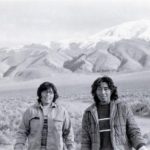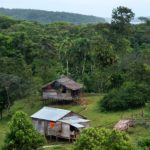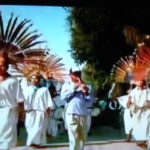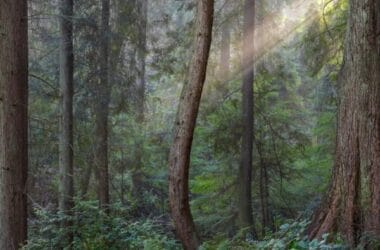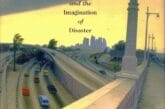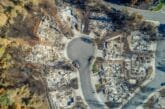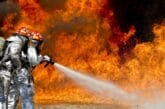Documentary film on indigenous communities in Chubut province in Patagonia, Argentina, their struggle over land rights and the threats from mining its mineral wealth, cutting its trees and development by other multinational interests.
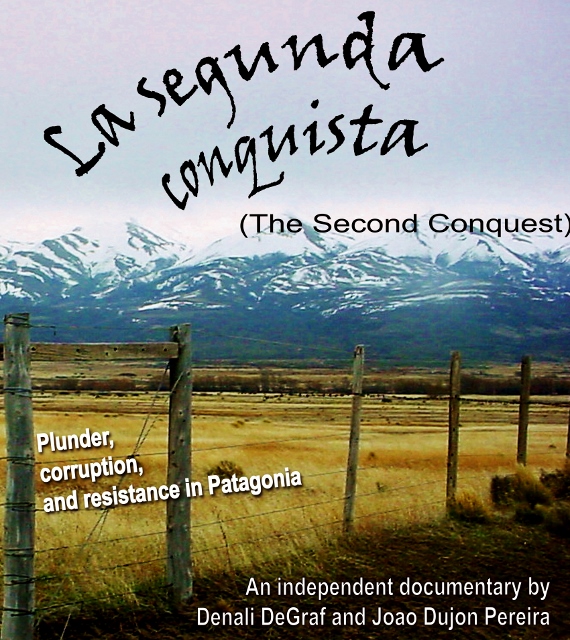

La Segunda Conquista – Documentary Film On Indigenous Families And Ongoing Land Conflicts In Argentina
A film by João Dujon Pereira and Denali DeGraf (2006)
La Segunda Conquista (The Second Conquest) is an independent documentary about land rights, extractive industries, and the situation of indigenous communities in northwestern Chubut province, in Patagonia, Argentina. It was filmed and edited from June 2006 to April 2007, first screened in April 2007, and has since been shown around Argentina, Australia, the US, Canada and the UK.
Unfortunately, the myth of Patagonia as distant wild country has become a smokescreen for those who profit from extracting the region’s subsurface resources—silver, gold, uranium, lead, and oil. From their point of view, the less anyone knows about what’s happening, the better. – Denali DeGraf in “Sojourners“
By 1870 in Argentina, General Julio Argentino Roca led a military campaign known as “The Conquest of the Desert.” Through systematic genocide and land theft, they established dominance over Patagonia Argentina.
Multinational Corporations and their owners, as Benetton, Joe “Hard Rock Cafe” Lewis, Ted Turner of CNN, Meridian Gold mining corporation, corrupt government officials, lawyers and businessmen alike, appropriated large tracts of land. Some of these properties are acquired legally, but most common are cases of illegality through shady deals, elusive and strong-arm tactics, completely at odds with the rights of the Mapuche and other non-Aboriginal people in the region. The tools used are the threats and in some cases death.
The film follows the stories of five families and communities in the area, as they describe the ongoing land conflicts they face. Through testimonies of individuals involved, as well as by other local experts (lawyers, journalists, community members, researchers), it shows the relationship between the various cases. The mechanisms of plunder and corruption may vary slightly from case to case, sometimes through threats or actual violence, sometimes through false paperwork, sometimes through “legal” but deceitful tactics. And the interests behind them also vary, from forestry to mining, to real estate, to tourism.
The Mapuche people native to Patagonia lived semi-nomadically on both sides of the Andes, in what is now Chile and Argentina. In the 1880s, brutal military campaigns by the Chilean and Argentinian governments finished a two-century-old project that wiped out the majority of the population and left survivors scattered in the most isolated and inhospitable land around, which of course no white folks wanted. Until recently, when they discovered profitable mineral deposits under it. — Denali DeGraf
But as the film shows, these are minor variations in the structures of injustice that are stripping campesinos of their land and putting it in the hands of those who do not live on it or work it. Finally, the film addresses the growing resistance in the region, as the communities are beginning to organize in each other’s defense.
[vimeo clip_id="75186298"]La Segunda Conquista, Directed and produced by Denali DeGraf and João Dujon Pereira
Camera: João Dujon Pereira, Interviews and Journalistic Direction: Denali DeGraf
Original music: Denali DeGraf
Narration: Valeria Belozercovsky
Sound Editing: Daniel Schor
Epilogue: Sebastián Hacher y Santiago Scrinzi
Language: Spanish, Subtitles: English, Spanish, Italian
68 min, NTSC
If civilization careens off the cliff of unsustainable consumption, the crash will be painful and dangerous. We are nostalgic for far-off places on the periphery because they are our best hope for rediscovering our relationship to the great mystery of earth and spirit that sustains us. Before long we’ll be asking people like the Mapuche to teach us to fish.
Denali DeGraf is a photographer, lute-maker, and radio journalist based in the Andes mountains of Patagonia, Argentina.



